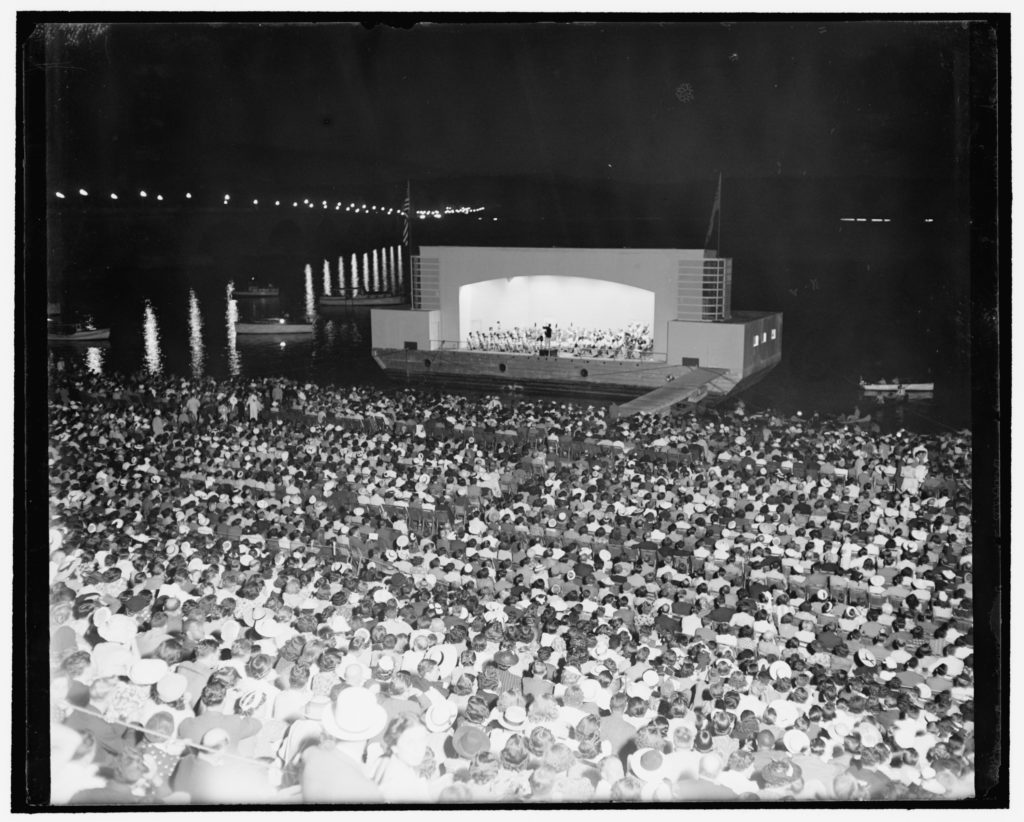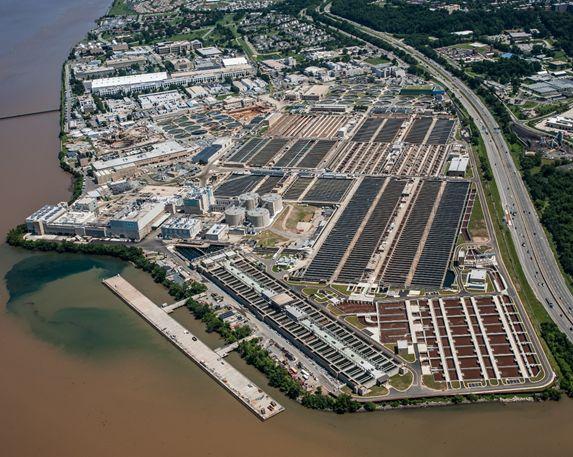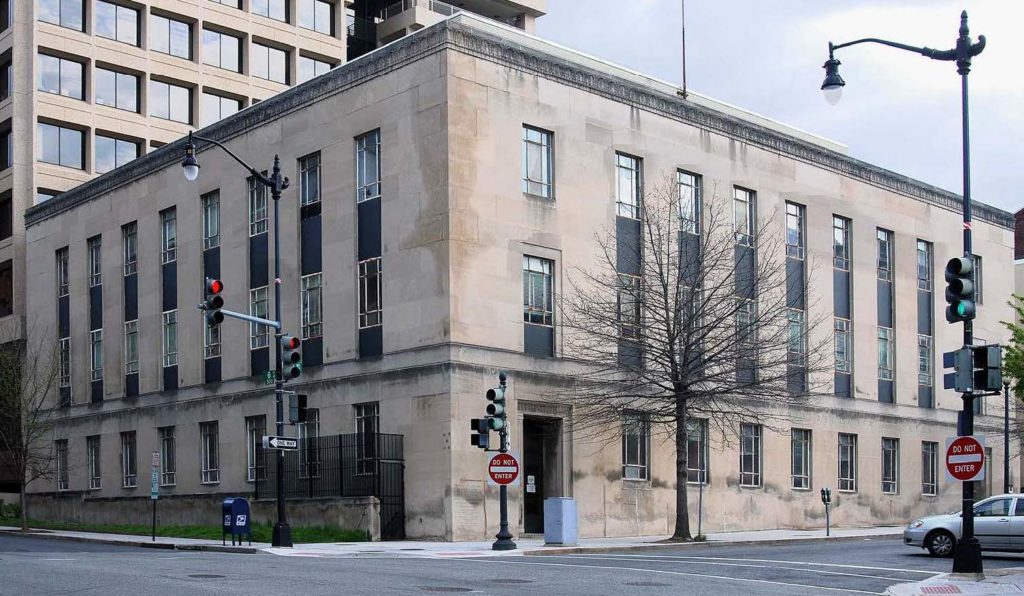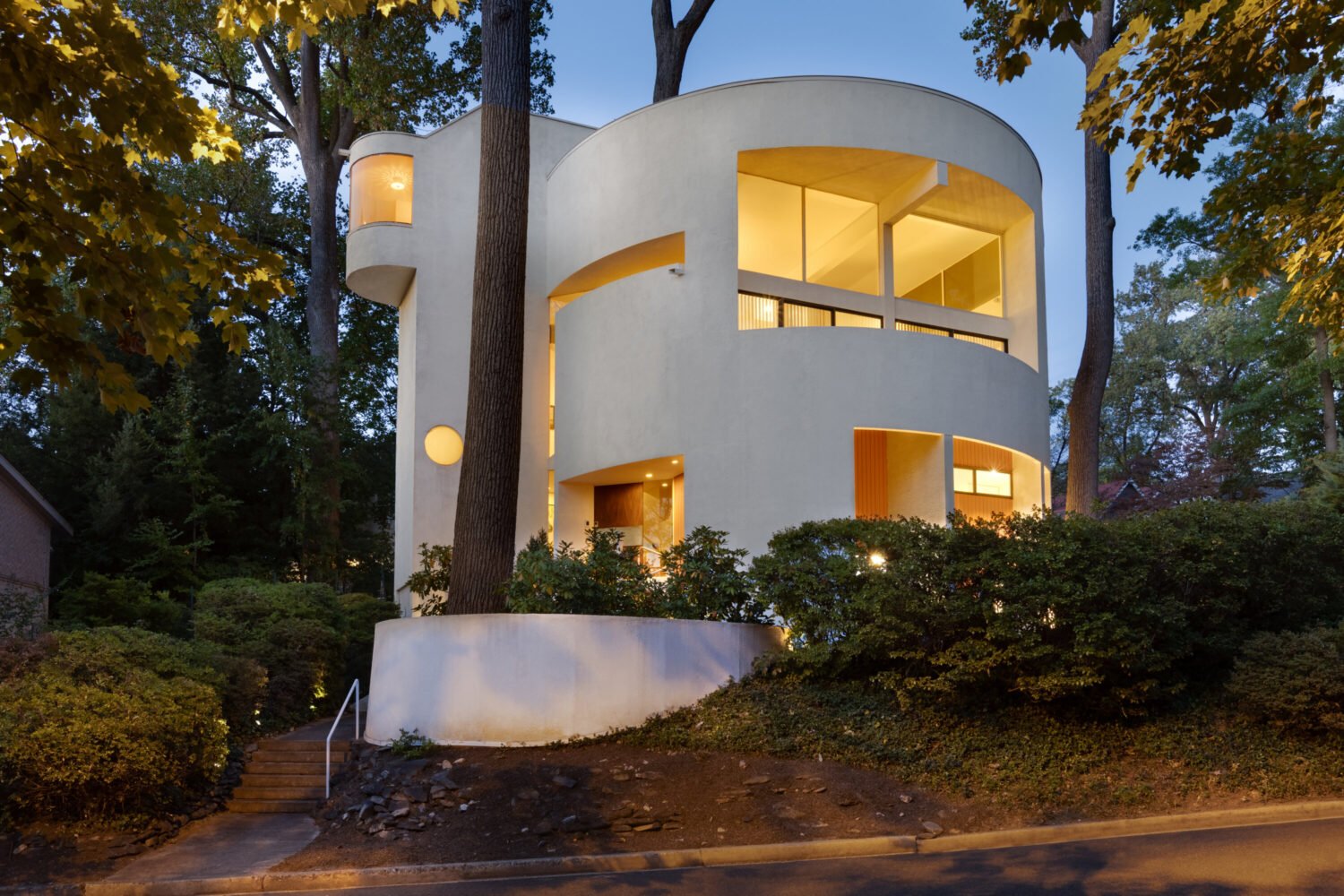The Living New Deal project showcases sites built by FDR’s programs. To mark the launch of its map dedicated to DC, we asked historian Brent McKee—who spearheaded the effort—to highlight some local spots.
Check out the interactive map below. To see the DC sites, just enter “Washington, DC” in the text box.

Potomac River Band Shell
New Deal funds and WPA workers built this concert stage, located on a barge in the river. Listeners gathered on the steps of the Lincoln Memorial and in canoes to watch orchestras perform. By the 1960s, “the airport noise got too bad and it ruined the ability to have concerts there,” says McKee. There’s now no on-site evidence of the band shell’s existence.

Blue Plains Advanced Wastewater Treatment Plant
Before this and other plants were built, the city’s waste went straight into the Potomac. “DC was a fairly dirty and smelly place in the 1920s and early ’30s,” says McKee. “The New Deal cleaned up DC in a literal way.” Today, Blue Plains—now much updated—serves more than 6 million people in the Washington area.
Frederick Douglass National Historic Site Restoration
The Anacostia house where Douglass spent the last 17 years of his life, known as Cedar Hill, had fallen into dis-repair when New Deal work-ers fixed it up and cataloged Douglass’s books and papers. “There’s a place in the back that looks like a little shed, and Douglass apparently went there for solitude and to read,” says McKee. “The New Deal helped it become a preserved place.”

Recorder of Deeds Building
Opened in 1943 and funded by the New Deal, this DC-government structure is notable for both its exterior and the artwork inside, which depicts great moments in African American history. Unfortunately, the building is no longer in regular use, says McKee: “A lot of beautiful New Deal artwork is off-limits to the public, which is sad.”
Map courtesy of the Living New Deal.





